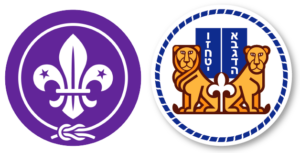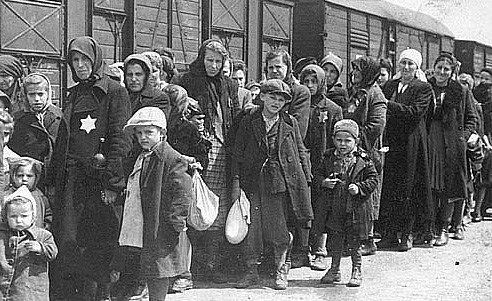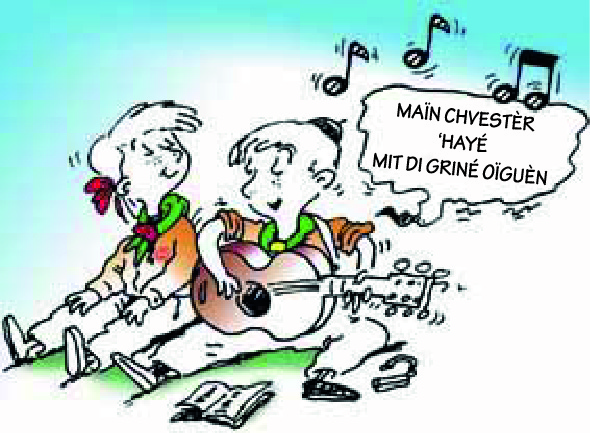« If Homer hadn’t written, would we remember Troy? Who would have heard of Guernica, that little village of nothing, if it hadn’t been for Picasso’s painting? Who would have transmitted what Giacometti transmitted without being aware of it, with that emaciated man walking towards the unknown? The unspeakable can only be told through the narrative. » (Rachel Ertel)
The Shoah (Hebrew: שואה, « disaster ») was the systematic extermination by Nazi Germany of between five and six million Jews, two-thirds of the Jews of Europe and about 40% of the Jews of the world, during the Second World War.
Jews, designated by the Nazis as their irreducible enemies and assimilated to an inferior race according to their ideology, were starved to death in the ghettos of occupied Poland and the occupied USSR, murdered by the massive shootings of the Einsatzgruppen on the Eastern Front (the « Shoah by bullets »), by forced labour in the concentration camps, in « gas trucks », in the gas chambers and crematoria of the extermination camps. This part of the Shoah makes it the only industrialized genocide in history.
It is a language, the Yiddish, and a millennia-old culture that almost disappeared after this tragedy. Who would have thought that klezmer music – the music of Jewish weddings in Eastern Europe – would become a vibrant and dynamic world music from the 1990s onwards?
Singing a song in Yiddich is like lighting a candle; it is the most beautiful prayer of remembrance!
I recommend this poem in Yiddish from Binem HELLER (1908-1998) “Mein shwester Chayei” set to music by Chava Alberstein that we discovered in the album The Well of the American klezmer group The Klezmatics.
Chava ALBERSTEIN in Israel, and KLEZMATICS in the United States testify through their work to the permanence and modernity of Yiddish song and klezmer music.
This moving poem reminds us:
- the miserable living conditions of Jews living in Central Europe;
- their extermination = the Shoah;
- the difficulty for the survivors to express themselves in a world that has let the unimaginable happen;
- the Yiddich, the language spoken by most of the Jews who were exterminated during the Shoah.
May Chayei become your little sister. Through your song in Yiddish, it is her memory and that of all the deported children that you will honour.
In 2005 for the ceremony commemorating the 60th anniversary of the liberation of the extermination camps, I taught this song to a choir of two colleges in Besançon. Hearing fifty students sing the story of Chayei in Yiddish that evening was very moving. After this song, they lit small candles of remembrance with all the people present, which floated on the water in front of the town hall of Besançon.
|
|||||||||||||
S’Dremlen Feygl “Dreaming Birds”
This lullaby comes from the Vilna ghetto. Tens of thousands of Jews were killed in the Vilna Ghetto, Lithuania, from 1941 to 1943. Amid horrible circumstances, the Jewish people began to create powerful art; theatre productions, poetry, and music performances.
The words to this lullaby were written by Leah Rudnicki (pronounced Rudnitzky); the music is by Leyb Yampolski.
Taken from the album: “With a Song In the Heart – Shabbath and Holiday Yiddish Songs” – Preformed by Tova Ben-Zvi.
Download/Listen to S’Dremlen Feygl
|
S’Dremlen feygl oyf di tsvaygn, |
Birds are drowsing in the branches, |
|
Shlof, mayn tayer kind. |
Sleep, my dear child, |
|
Bay dayn vigl oyf dayn nare |
By your cradle, at your cot, |
|
Zitst a fremde un zingt: lyu, lyu. |
Sits a stranger and sings: Lyu lyu. |
|
|
|
|
S’iz dayn vigl vu geshtanen |
Your cradle was here, |
|
Oysgeflokhtn fun glik. |
Interlaced with happiness. |
|
Un dayn mame, oy dayn mame, |
And your mother, oh, your mother, |
|
Kumt shoyn keynmol nit tsurik: lyu, lyu. |
Will never return. |
|
|
|
|
Kh’hob gezen dayn tatn loyfn |
I saw your father running |
|
Unter hogl fun shteyn. |
Under a hail of stones, |
|
Iber felder iz gefloygn |
Over the fields there flew |
|
Zayn faryosemter geveyn: lyu, lyu. |
his orphaned cry. |
Leonard Cohen’s « Hallelujah » – in Yiddish
Klezmer musician Daniel Kahn performs the moving song, which he translated with a little help from his friends.
Amazing Yiddish Rendition of Leonard Cohen’s ‘Hallelujah’
with help from Michael Alpert, Mendy Cahan and Josh Waletzky

Tsofim Yehudim, L’Dor VaDor
Jewish Scouts, from generation to generation


